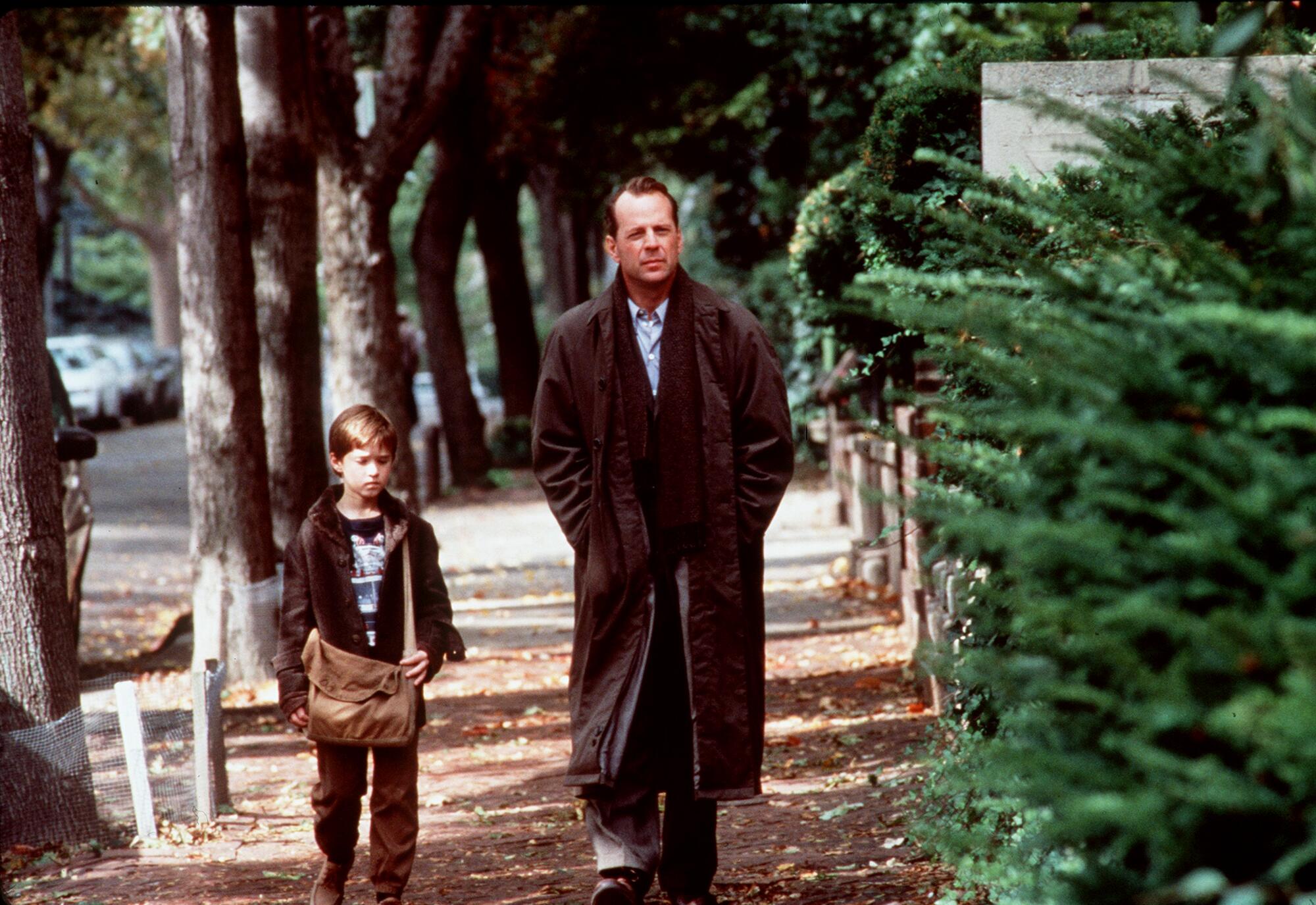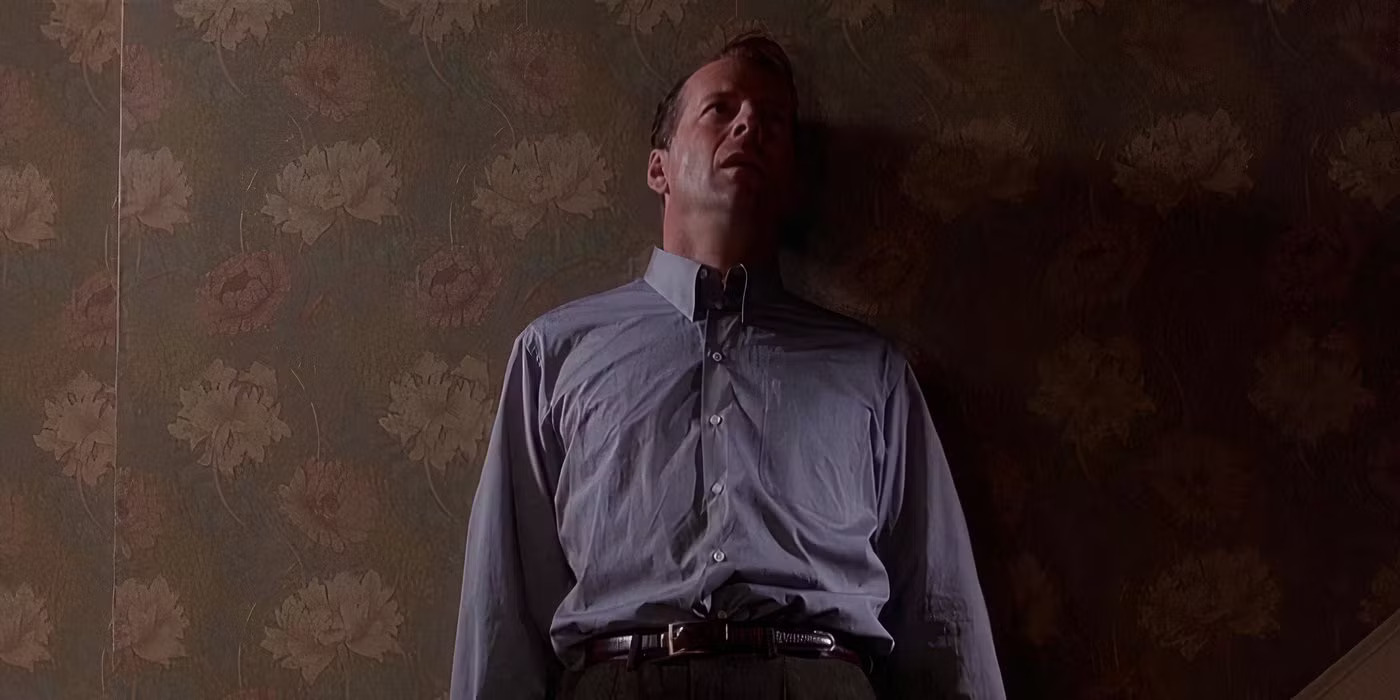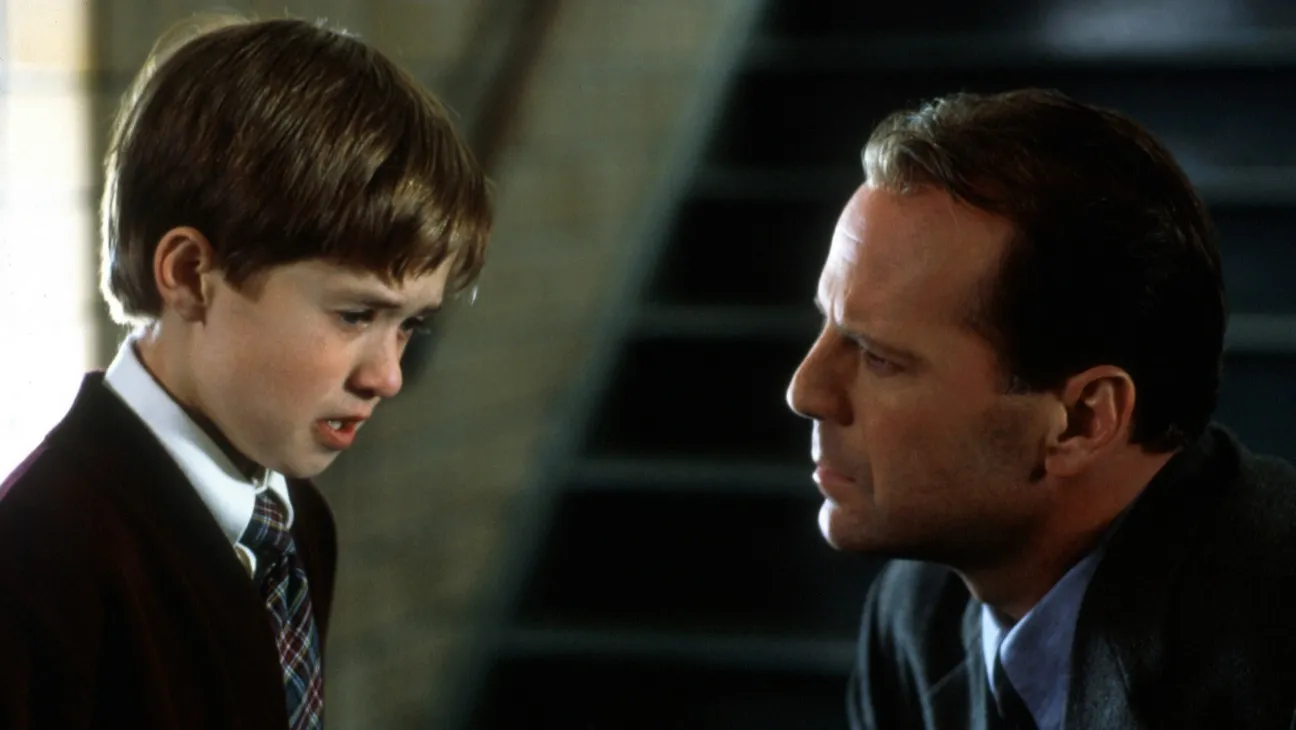The Sixth Sense, a psychological thriller by M. Night Shyamalan, is famous for its iconic line, “I see dead people,” spoken by the young Cole Sears (Haley Joel Osment). Throughout the film, Cole reveals that he can see and communicate with ghosts, a power that troubles him deeply. He confides in psychologist Dr. Malcolm Crowe (Bruce Willis), who is trying to reconcile with his own personal struggles, particularly the guilt surrounding the death of his former patient, Vincent Grey (Donnie Wahlberg). As the plot unfolds, their connection grows, and Malcolm helps Cole navigate his haunting experiences.
Malcolm’s character begins the story in a strained marriage with his wife, Anna (Olivia Williams). He feels disconnected from her, as she appears indifferent to him. However, the story takes a dramatic turn when Malcolm discovers that he has been dead the entire time. The key moment occurs when he notices his wedding ring fall from Anna’s finger, realizing that he is a ghost and had not been aware of it. This revelation serves as the pivotal twist that changes everything, deepening the emotional resonance of the story.
The film reveals that Malcolm was killed during a confrontation with Vincent, who shot him early in the movie. Instead of moving on to the afterlife, Malcolm’s spirit remains to help Cole. Their bond grows as Malcolm assists the young boy in understanding his ability to see the dead. However, Malcolm struggles to come to terms with his own death, clinging to the belief that he must fix things with his wife. This emotional journey allows the character to grow in compassion, teaching viewers important lessons about acceptance, guilt, and healing.

The Real Connection: Malcolm and Cole’s Shared Experiences
Malcolm’s role as a therapist is central to his relationship with Cole. As the film progresses, it becomes clear that Malcolm’s unique connection with Cole goes beyond the typical therapist-patient relationship. Their bond is strengthened by a shared understanding of the spiritual world, which neither can escape. Cole, who has lived in fear of his gift, finds comfort in Malcolm’s acceptance of the supernatural, while Malcolm, through helping Cole, begins to find peace with his own existence. The characters’ connection is crucial to their emotional growth.
The twist reveals that Cole is not just a helpless child but a pivotal figure in the story, helping Malcolm find peace. Before the reveal, Cole had struggled to cope with his ability to see spirits. However, as the film progresses, he becomes less fearful and more willing to embrace his gift. A key moment occurs when he shares an emotional scene with his mother, Lynn (Toni Collette), explaining how he sees her mother’s ghost. This interaction symbolizes Cole’s growing acceptance of his abilities and his longing for understanding from his family.
Malcolm and Cole’s relationship becomes more profound as the film unfolds. The characters help each other in unexpected ways, with Malcolm providing a sense of safety and comfort for Cole. Through their interactions, the two characters work through their emotions and fears, with Malcolm learning from Cole’s bravery and Cole finding solace in Malcolm’s guidance. This mutual exchange is one of the most touching aspects of the film, highlighting the importance of empathy, support, and understanding.

The Twist: A Shocking Revelation About Malcolm’s Death
The most famous twist of The Sixth Sense occurs when it is revealed that Malcolm has been dead all along. This discovery shifts the entire perspective of the film, retroactively changing the way viewers interpret the characters’ interactions. The twist is not only shocking but also emotionally fulfilling. It deepens the film’s themes of life, death, and the afterlife, showing how the characters’ unresolved emotional baggage affects their journey. Malcolm’s eventual acceptance of his death brings him closure and helps him move on to the next phase of existence.
In the film’s emotional climax, Malcolm gives Anna a final message, telling her that she was never second to him and that he loves her. This moment of closure is crucial for both the character and the audience. It highlights Malcolm’s realization that he can finally let go of his earthly attachments and accept his role as a ghost. His journey of helping Cole, along with his emotional reconciliation with Anna, signifies his acceptance of death and the importance of emotional healing.
For Cole, the movie’s conclusion is also one of growth and understanding. His ability to see and communicate with ghosts is no longer something to fear but something to embrace. With the support of Malcolm, Cole begins to understand that death is a natural part of life. He gains confidence in his ability to help others, particularly when he provides comfort to his mother. The film’s message is clear: death is not an end but a part of the continuous cycle of life, and the dead may have unfinished business that can be addressed with compassion.
The Sixth Sense is not only memorable for its haunting moments and performances but also for its iconic twist ending. Shyamalan’s skillful manipulation of the narrative, dropping subtle clues throughout the film, makes the twist even more powerful upon rewatching. The film stands as a testament to Shyamalan’s ability to create a story that balances emotional depth with supernatural intrigue. The twist is not simply a gimmick but an essential part of the characters’ emotional journeys, making it one of the most memorable and impactful endings in cinematic history.



